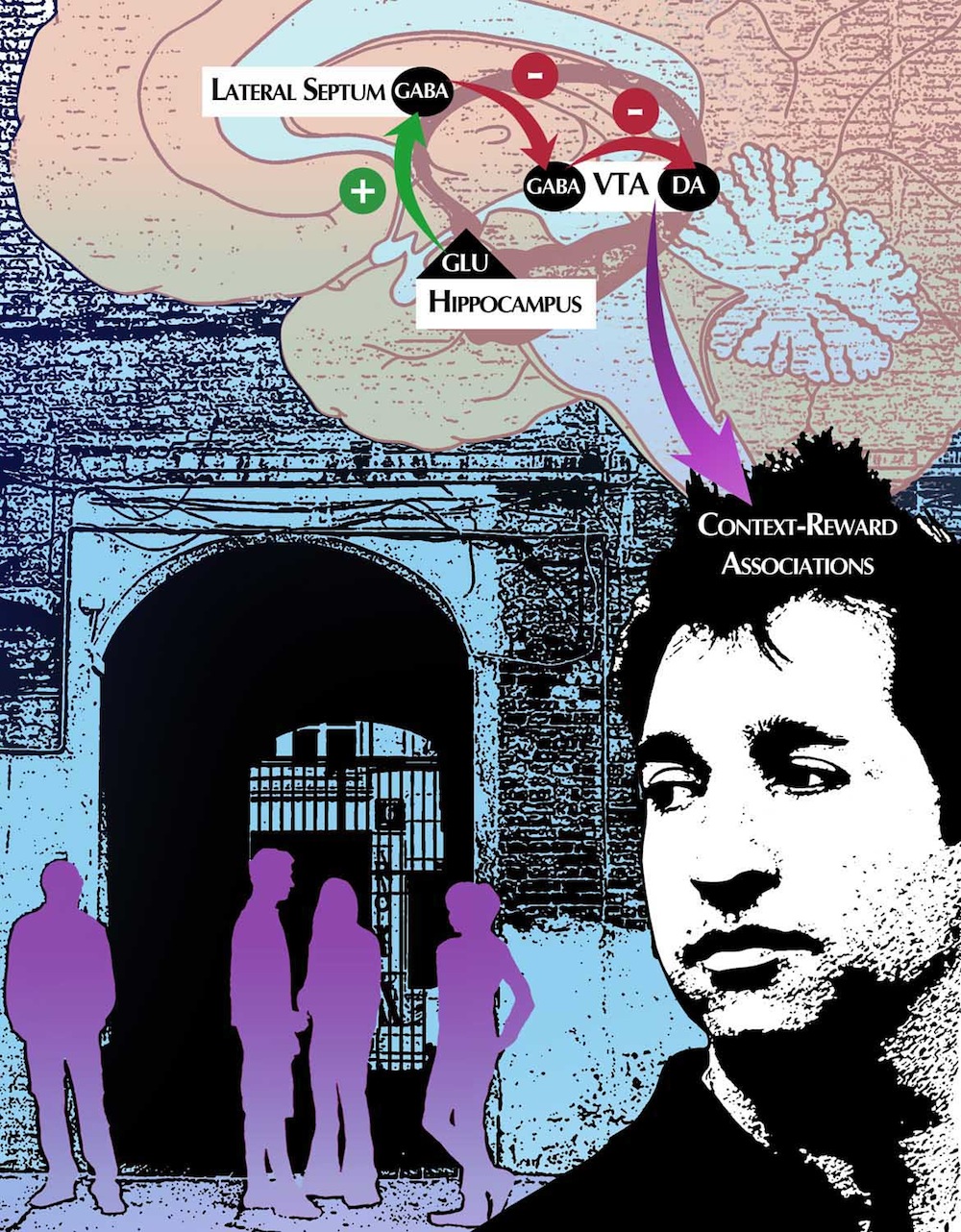New Brain Discovery May Help Prevent Relapses in Addicts

What makes you crave a Big Mac when you see the golden arches? Or long for a beer when you see a cold one on TV? A single pathway in the brain is to blame, new research suggests, and putting the brakes on it could stop addicts from relapsing.
The pathway connects the hippocampus, the part of the brain that analyzes and interprets the environment around you (using the contextual information that comes in through your senses, such as seeing a beer on TV) with the ventral tegmental area, or VTA, which processes reward-driven behaviors (such as grabbing a beer from the refrigerator).
Reward-driven behaviors release the brain chemical dopamine. Such behaviors include sex and eating, which are very important in daily life. But some drugs release these dopamine "rewards" at higher levels than natural reactions do, the heart of addiction.
"One of the issues we know of in drug addition is that a simple re-exposure to the drug-using environment ... will often result in relapse," said study researcher Alice Luo of the National Institutes of Health, in Baltimore. "Hopefully we can short-circuit the actual circuit itself, so the link between the context and reward could be blunted."
Pinpointing the pathway
To pinpoint this pathway, researchers studied a group of rats. The researchers first injected a virus into the VTA of the rats' brains. The virus, which was labeled in a way that the researchers could track it, entered the neurons of the VTA and spread to connecting neurons, revealing various pathways. The researchers concentrated on the pathway linked to the hippocampus. (To check whether this pathway can actually conduct information, they stimulated the hippocampus with brain waves, and saw a huge jump in activity in the VTA in response.)
The researchers then put the rats in two types of cages, one that would administer cocaine to the animals and one that didn't.
Get the world’s most fascinating discoveries delivered straight to your inbox.
The rats would receive an injection of the drug when they pressed a lever (doing "work" to get the drug) in the special cocaine cage. In their normal cage, though, a lever push wouldn't give the rats cocaine, and they eventually stopped trying.
Whenever the rat was placed back in the cocaine cage, the different environment reminded it to start pushing the lever again, just like seeing drug paraphernalia or a drug use environment can cause craving and relapse in an addict.
However, when the hippocampus-VTA pathway was blocked using inhibitory brain chemicals, the rat's lever-pushing habit relapses decreased severely — about 75 percent.
"They corrupted that pathway, and they could interfere with that drug-seeking response," said Friedbert Weiss, a researcher at the Scripps Research Institute in San Diego, who wasn't involved in the study. "It identifies the key points along that connection that are responsible for mediating that response and could in the future serve as targets for pharmacotherapy."
Tinkering with thoughts
If drugs can be found that block the pathway, it's possible they could reduce environment-driven cravings, as a supplemental treatment to rehab and addiction counseling.
Other effects of blocking this integral pathway remain to be seen, however. The hippocampus plays an important part in learning and memory and is also important in understanding the changing environment around us. If normal reward-seeking behaviors, like eating and drinking, were also blocked by the therapy, the eventual result could be anhedonia, or the inability to experience pleasure.
The researchers plan to investigate this pathway further, to determine what molecules and receptors the brain uses to communicate along it. The researchers also want to investigate what other therapies could be used, including deep-brain stimulation of the region to blunt communication along the pathway.
You can follow LiveScience staff writer Jennifer Welsh on Twitter @microbelover. Follow LiveScience for the latest in science news and discoveries on Twitter @livescience and on Facebook.
Jennifer Welsh is a Connecticut-based science writer and editor and a regular contributor to Live Science. She also has several years of bench work in cancer research and anti-viral drug discovery under her belt. She has previously written for Science News, VerywellHealth, The Scientist, Discover Magazine, WIRED Science, and Business Insider.



